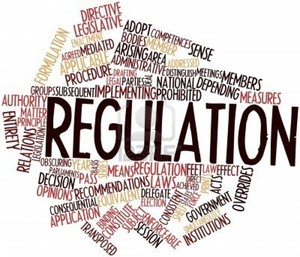Most Latin American countries are in the process of or have already established their own regulatory guidelines for similar biotherapeutic products (SBPs), and there are regional recommendations on how to ensure the safety and efficacy of biosimilars.
According to the authors [1], despite having the framework in place, national guidelines on interchangeability and naming are still lacking, and pharmacovigilance systems are very bureaucratic and perceived by many physicians to be far from clinical practice.
Table 1 presents the regulatory landscape for SBP in Latin America.
| Table 1: Regulatory landscape for similar biotherapeutic products in Latin America
|
| Regulations in place
|
Country
|
Year
|
| Argentina
|
2011/2012
|
| Brazil
|
2010
|
| Chile
|
2014
|
| Colombia
|
2014
|
| Costa Rica
|
2012
|
| Cuba
|
2011
|
| Ecuador
|
2013
|
| Guatemala
|
2011
|
| Mexico
|
2014
|
| Panama
|
2008
|
| Peru
|
2016
|
| Dominican Republic
|
2017
|
| Uruguay
|
2015
|
| Regulations released
|
Paraguay
|
2016
|
| Regulations in preparation
|
Bolivia
|
|
| Regulations in preparation
|
Venezuela
|
|
Table 1 presents the regulatory landscape for SBP in Latin America.
| Table 1: Regulatory landscape for similar biotherapeutic products in Latin America
|
| Regulations in place
|
Country
|
Year
|
|
|
Argentina
|
2011/2012
|
|
|
Brazil
|
2010
|
|
|
Chile
|
2014
|
|
|
Colombia
|
2014
|
|
|
Costa Rica
|
2012
|
|
|
Cuba
|
2011
|
|
|
Ecuador
|
2013
|
|
|
Guatemala
|
2011
|
|
|
Mexico
|
2014
|
|
|
Panama
|
2008
|
|
|
Peru
|
2016
|
|
|
Dominican Republic
|
2017
|
|
|
Uruguay
|
2015
|
| Regulations released
|
Paraguay
|
2016
|
| Regulations in preparation
|
Bolivia
|
|
| Regulations in preparation
|
Venezuela
|
|
The regulatory process for SBP should be harmonized according to the World Health Organization’s (WHO) recommendations in all Latin American countries. As more SBP become available, post-marketing assessment is essential to enable risk monitoring.
Ultimately, clinicians in Latin America need to be well informed about the principles of biosimilarity and the regulatory pathways adopted in their countries, as well as what they should expect in terms of the clinical characteristics of approved biosimilars.
Editor’s comment
Readers interested to learn more about similar biotherapeutic products in other countries are invited to visit www.gabi-journal.net to view the following manuscript published in GaBI Journal:
Regulations for biotherapeutics approval in Colombia
GaBI Journal is indexed in Embase, Scopus, Emerging Sources Citation Index and more.
Readers interested in contributing a research or perspective paper to GaBI Journal – an independent, peer reviewed academic journal – please submit your manuscript here.
GaBI Journal Citation Impact
1.9 – CiteScore 2020 (calculated on 5 May 2021)
1.6 – CiteScoreTracker 2021 (Last updated on 4 June 2021)
Submit a manuscript to GaBI Journal
Related article
Biobadamérica promueve el uso de fármacos biológicos y biosimilares en Latinoamérica
| LATIN AMERICAN FORUM The brand-new section the ‘Latin American Forum’ on GaBI has been launched. The objective of this new section is to provide you with all the latest news and updates on developments of generic and biosimilar medicines in Latin America in Spanish. View this week’s headline article: Biosimilares en Japón: una perspectiva general Browse the news in the Latin American Forum! Register to receive the GaBI Latin American Forum newsletter. Inform colleagues and friends of this new initiative. LATIN AMERICAN FORUM Se ha lanzado la nueva sección del ‘Foro Latinoamericano’ sobre GaBI. El objetivo de esta nueva sección es brindarle las últimas noticias y actualizaciones sobre desarrollos de medicamentos genéricos y biosimilares en América Latina en español. Vea el artículo principal de esta semana: Biosimilares en Japón: una perspectiva general Explore las noticias en el Foro Latinoamericano! Regístrese para recibir el boletín informativo GaBI Latin American Forum. Informe a colegas y amigos sobre esta nueva iniciativa.
|
Reference
1. Azevedo VF, Babini A, Caballero-Uribe CV, et al. Practical guidance on biosimilars, with a focus on Latin America. What do rheumatologists need to know?.J Clin Rheumat. 2019;25:91-100. doi: 10.1097/RHU.0000000000000881
Permission granted to reproduce for personal and non-commercial use only. All other reproduction, copy or reprinting of all or part of any ‘Content’ found on this website is strictly prohibited without the prior consent of the publisher. Contact the publisher to obtain permission before redistributing.
Copyright – Unless otherwise stated all contents of this website are © 2021 Pro Pharma Communications International. All Rights Reserved.








 0
0











Post your comment